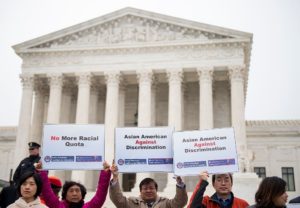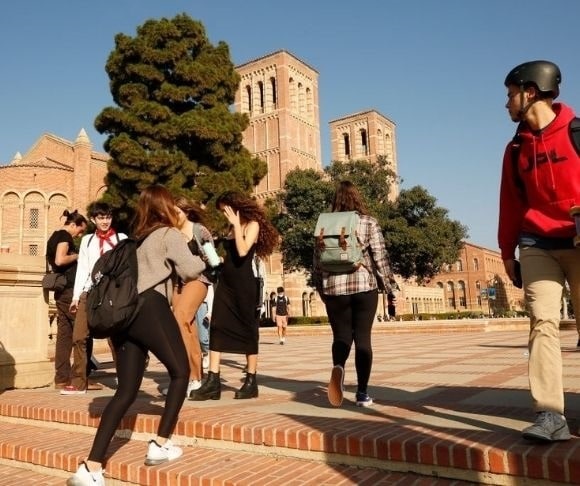The Supreme Court has announced it will take up a challenge to affirmative action in higher education. On Monday, appeals were granted in two federal lawsuits brought by the nonprofit Students for Fair Admissions. The court combined the suits, which allege that Harvard and the University of North Carolina’s admissions policies illegally discriminate against Asian-American and white applicants.

(Photo By Bill Clark/CQ Roll Call)
In a statement released to Liberty Nation, Students for Fair Admissions’ founder Ed Blum said, “Harvard and the University of North Carolina have racially gerrymandered their freshman classes in order to achieve prescribed racial quotas.” He added, “Every college applicant should be judged as a unique individual, not as some representative of a racial or ethnic group.”
According to Harvard President Larry Bacow, however, “The Supreme Court decision to review the unanimous decisions of the lower federal courts puts at risk 40 years of legal precedent granting colleges and universities the freedom and flexibility to create diverse campus communities.”
Yeah, But Still …
The last landmark affirmative action case decided by the Supreme Court was in 2003 when the University of Michigan’s practice of discrimination against whites was allowed by a narrow 5-4 majority. While discriminating against people based on race in admissions seems impermissible by a plain reading of federal statutes and the Constitution, the Supreme Court ruled it was allowable in Grutter v. Bollinger. This new petition asks explicitly for the Court to overturn Grutter.
Only two Justices who ruled on that case are still serving, Stephen Breyer and Clarence Thomas. Thomas dissented from the majority with as thoroughly compelling a rebuke to affirmative action and racial preferences as has been written: “The Constitution abhors classifications based on race, not only because those classifications can harm favored races or are based on illegitimate motives, but also because every time the government places citizens on racial registers and makes race relevant to the provision of burdens or benefits, it demeans us all.”
He quoted Frederick Douglass in his objection to racial discrimination waged in favor of blacks and included a passage from “What the Black Man Wants,” an address Douglass gave in 1865:
“What I ask for the negro is not benevolence, not pity, not sympathy, but simply justice. The American people have always been anxious to know what they shall do with us … I have had but one answer from the beginning. Do nothing with us! Your doing with us has already played the mischief with us. Do nothing with us!”
As for Justice Breyer, he agreed with the majority opinion in Grutter, with one notable exception. Justice Sandra Day O’Connor authored the majority ruling, which allowed Michigan to continue its discriminatory policies. She said, however, “We expect that 25 years from now, the use of racial preferences will no longer be necessary to further the interest approved today.” Justice Breyer signed on to a concurring opinion authored by Justice Ruth Bader Ginsburg, solely focusing on objecting to that part of O’Connor’s ruling. Ginsburg concluded her opinion with, “From today’s vantage point, one may hope, but not firmly forecast, that over the next generation’s span, progress toward nondiscrimination and genuinely equal opportunity will make it safe to sunset affirmative action.”
 Segregation Now, Tomorrow, Forever
Segregation Now, Tomorrow, Forever
Justice Thomas used his final words in that dissent to mock the notion that racial discrimination would be acceptable from 2003 until 2028, writing, “the Constitution means the same thing today as it will in 300 months.” It’s a fair bet that neither he nor Justice Breyer is likely to move far from their positions in the previous case.
Mr. Blum is now, with this successful bid, getting affirmative action back before the Supreme Court, a one-man wrecking crew against laws that allow discrimination against whites and Asians. Recent headlines about the Voting Rights Act and attempts to abolish the Senate filibuster are largely a result of another Supreme Court case Blum is responsible for, Shelby County v. Holder. He is not a lawyer but holds a fellowship at the American Enterprise Institute think tank. He concluded his statement thusly:
“The cornerstone of our nation’s civil rights laws is the principle that an individual’s race should not be used to help or harm them in their life’s endeavors. We hope the Supreme Court will use these cases to begin the restoration of the colorblind legal covenant that holds together Americans of all races and ethnicities.”
The Court is likely to hear the case in the fall when it starts a new term.
~ Read more from Scott D. Cosenza.




